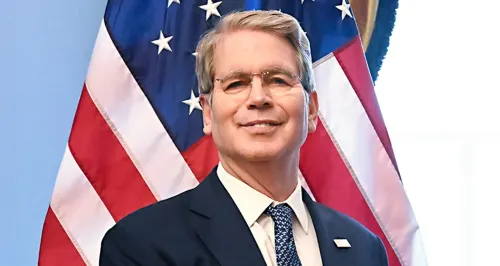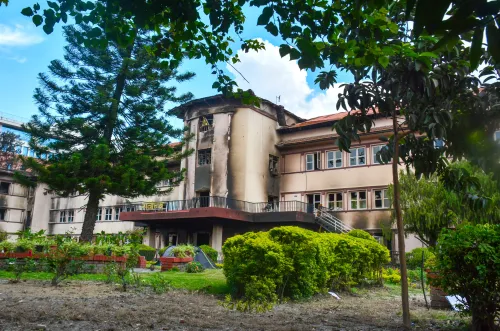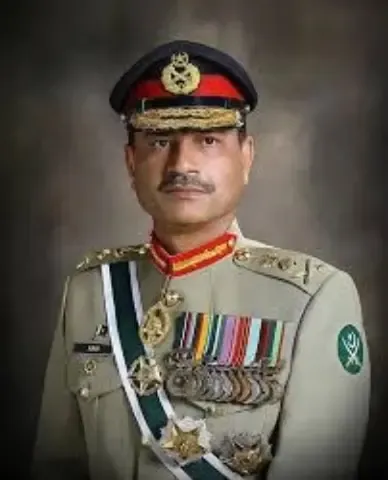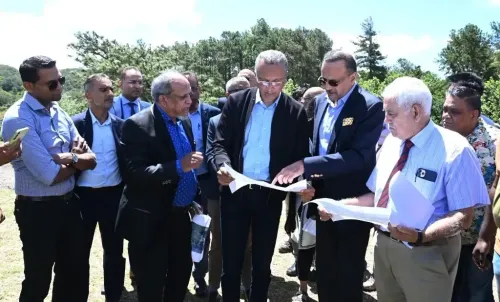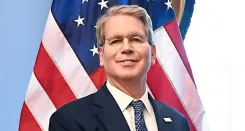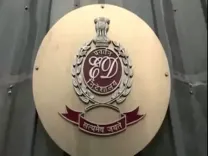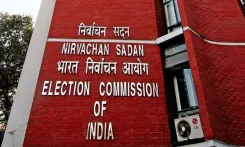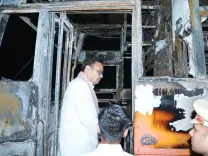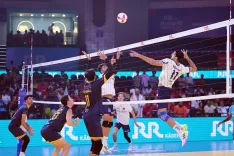Why Does the UN Need Comprehensive Reforms? Rajnath Singh
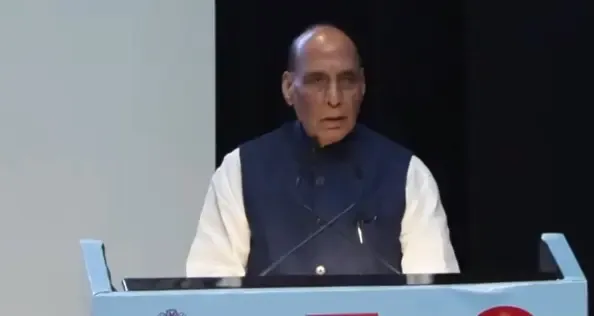
Synopsis
Key Takeaways
- Reforms in the UN are essential to address contemporary global challenges.
- India has a significant role in peacekeeping and training peacekeepers.
- The participation of women in peacekeeping enhances mission effectiveness.
- Collaboration among troop-contributing countries is crucial for success.
- The UNTCC serves as a critical forum for discussing peacekeeping strategies.
New Delhi, Oct 14 (NationPress) Defence Minister Rajnath Singh on Tuesday underscored the urgent necessity for reforms within the United Nations, asserting that the global organization, in its present state, is grappling with a crisis of confidence.
Addressing the United Nations Troop Contributing Countries (UNTCC) Chiefs' Conclave organized by the Indian Army, Rajnath Singh remarked, “We cannot address today’s challenges with outdated multilateral structures. Without comprehensive reforms, the UN faces a crisis of confidence.”
“In our interconnected world, a reformed multilateralism is essential: one that mirrors current realities, amplifies the voices of all stakeholders, tackles modern challenges, and prioritizes human welfare,” he emphasized.
The Defence Minister noted, “As the largest contributor to UN peacekeeping missions historically, India is well-equipped to offer training and foster interoperability among peacekeepers from allied nations, which is vital for mission success.”
He highlighted that under the Aatmanirbhar Bharat initiative, India has created cost-effective indigenous technologies that bolster peacekeeping efforts, including land mobility platforms, secure communication systems, surveillance technologies, UAVs, and medical assistance solutions.
Singh also acknowledged India's role in promoting female peacekeepers. “India has been a trailblazer in this area. Our all-women Formed Police Unit sent to Liberia in 2007 became a global emblem of empowerment. Their professionalism and compassion inspired many Liberian women to join their national police force.”
Today, Indian female officers are active in missions across South Sudan, Golan Heights, and Lebanon, leading patrols, engaging with communities, and mentoring local women and youth, he remarked.
“They exemplify the best of modern peacekeeping—inclusion, respect, and trust. In 2024, an Indian Army woman peacekeeper received the United Nations Military Gender Advocate of the Year Award for her outstanding service in the UN peacekeeping mission in the Democratic Republic of Congo,” he stated.
“One of the most inspiring shifts in peacekeeping has been the increased involvement of women. Their participation enhances mission effectiveness, builds trust within local populations, and introduces empathy into operations that often occur in deeply human contexts,” he added.
Rajnath Singh asserted that India's approach to peacekeeping acknowledges that success is determined not just by numbers but by preparedness.
“Our Centre for United Nations Peacekeeping (CUNPK) in New Delhi has trained participants from over 90 nations. The Centre offers immersive, scenario-based learning, simulating negotiations with armed groups, humanitarian operations under threat, and civilian protection during crises,” he explained.
He emphasized that India advocates for a greater role for troop-contributing countries in shaping mission mandates. Those who serve on the ground and face risks should have a significant voice in formulating the policies that guide their missions.
According to Rajnath Singh, effective peacekeeping is a collective endeavor that hinges on a unified purpose. It is crucial for troop-contributing nations, the UN Secretariat, host countries, and regional organizations to collaborate harmoniously to achieve desired outcomes.
The UNTCC serves as an essential platform for addressing operational challenges, evolving threats, enhancing interoperability, ensuring inclusivity in decision-making, and leveraging technology and training to strengthen UN peacekeeping.
The conclave is witnessing participation from countries including Algeria, Armenia, Australia, Bangladesh, Bhutan, Brazil, Burundi, Cambodia, Egypt, Ethiopia, Fiji, France, Ghana, Italy, Kazakhstan, Kenya, Kyrgyzstan, Madagascar, Malaysia, Mongolia, Morocco, Nepal, Nigeria, Poland, Rwanda, Sri Lanka, Senegal, Tanzania, Thailand, Uganda, Uruguay, and Vietnam, as stated by the Defence Ministry.
The event exemplifies India’s steadfast commitment to global peace, stability, and shared prosperity, according to the Defence Ministry's statement.

